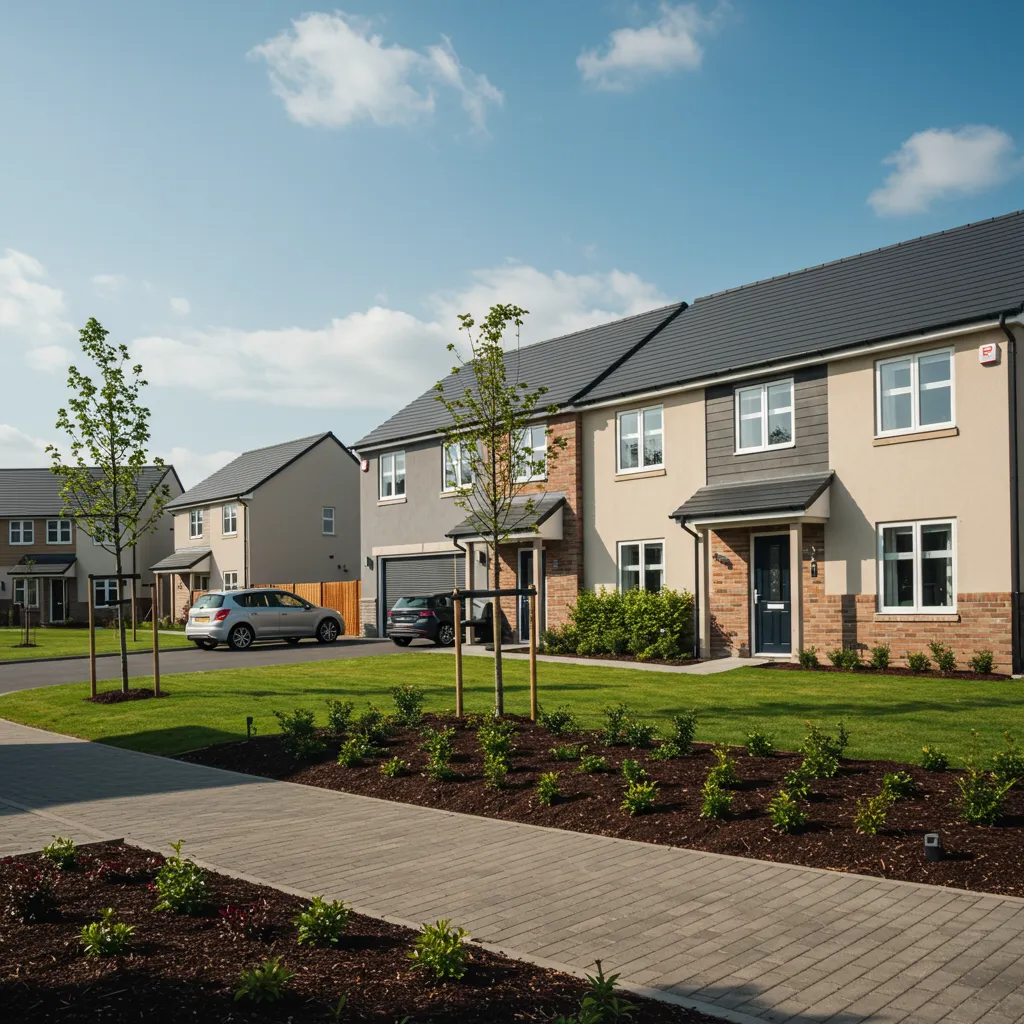
North Atlanta Homes: New vs. Resale in 2025
New-Build Perks or Resale Deals? Making the Smart Move in North Atlanta
Picture this: it’s a sunny Saturday in North Atlanta, and you’re driving past rows of fresh-painted model homes waving “Closing Costs Paid!” flags while your phone pings with alerts for price-reduced resales just down the street. Which path leads to the bigger win for your wallet—and your life? That tug-of-war is exactly what we unpack today.
Buying or selling a home here isn’t just about square footage or curb appeal; it’s about building long-term wealth with confidence. Let’s break down the typical builder incentives you’ll see in new communities and stack them against the potential bargains hiding in resale homes—so you can decide what feels smartest, safest, and most rewarding.
Why Incentives and Discounts Exist in the First Place
Builders and homeowners have one big thing in common: they want to move the property. But their strategies differ.
– Builders use incentives to keep sales velocity high and hit lender quotas. They can’t easily slash the base price without upsetting earlier buyers who paid more, so they sweeten the deal with perks.
– Resale Sellers may price-cut when life events—job relocation, divorce, or that next dream home—create urgency. They have more flexibility to adjust list price or cover buyer costs.
Understanding those motivations helps you negotiate like a pro.
Common New-Build Incentives in North Atlanta
Here are the builder perks we’re seeing most often across Alpharetta, Milton, Cumming, and nearby suburbs:
Closing Cost Contributions – Many national builders offer $7,500–$20,000 toward closing costs if you use their preferred lender.
Interest-Rate Buy-Downs – Temporary (2-1) or permanent rate reductions for the first few years, saving hundreds monthly.
Design Center Credits – $5,000–$25,000 in upgrade credits for flooring, lighting, or smart-home tech.
Appliance & Blinds Packages – Stainless-steel refrigerators, washer/dryer sets, or whole-house blinds thrown in.
Extended Warranties & HOA Pre-Pays – Extra year on structural warranty or 6–12 months of homeowners-association dues covered.
The Fine Print
– These incentives often require you to close within a set time frame. – Using a builder’s lender may mean higher origination fees—read the Loan Estimate carefully. – Incentives can disappear quickly if sales velocity returns; lock them in early.
Typical Resale Discounts You Can Negotiate
A resale homeowner can’t dangle shiny new-build upgrades, but they can offer financial wiggle room:
• Price Reductions – Sellers may cut $10,000–$50,000+ below original list to attract offers in the first 30 days.
• Seller-Paid Closing Costs – In a balanced market, 2%–3% concessions are common, covering appraisal, title, and escrow fees.
• Repair Credits – Post-inspection, negotiate $2,000–$15,000 off for HVAC age, roof wear, or cosmetic fixes.
• Furniture or Lawn Equipment – Especially helpful for first-time buyers who’d rather not buy a mower right away.
• Flexible Closing Dates & Lease-Backs – Gives sellers time to move out while letting buyers lock today’s rate.
New Construction vs. Resale: Side-by-Side Comparison
Buyer Perspective
Upfront Costs – New-builds may cover more closing fees, but base prices are typically higher. – Resales may require less cash to contract, thanks to lower earnest money expectations.
Monthly Budget – New builds with an interest buy-down can lower payments early, though rates adjust later. – Older homes might have higher utility bills unless recently updated.
Maintenance & Warranty – Everything in a new build is under warranty, so fewer surprises in years 1–3. – Resales may come with mature landscaping and finished basements that would cost extra to add to a new home.
Seller Perspective
Competition – Listing a resale next to active new construction? Price strategically or emphasize move-in readiness. – Selling a nearly new home (<5 years old) can still capture premium pricing if upgrades are visible.
Concession Strategy – Resale sellers can mix price drops with credits to widen buyer pool. – Builders typically won’t negotiate base price but can layer multiple incentives to sway buyers.
“Think of incentives like icing. The cake—location, floor plan, budget—still matters most. Don’t buy icing if the cake won’t feed your goals.” —Mary Ellen Vanaken
Real-World Scenario: The Johnsons vs. The Lees
– The Johnson Family fell in love with a $750,000 new construction in Milton offering a 2-1 rate buy-down and $15,000 design credit. Their out-of-pocket closing costs plunged by $12,000. Because they planned to stay 10+ years, they rolled the temporary rate savings into a refinance plan later.
– The Lee Couple found a 12-year-old resale in Alpharetta originally listed at $735,000. After 45 days on market, they negotiated down to $697,500, plus $10,000 in closing costs and $8,000 repair credit for an aging water heater. They used that instant equity to upgrade the kitchen within six months.
Both families “won” but used different strategies to align with their timelines and risk tolerance.
Pros and Cons Cheat Sheet
Advantages of New-Build Incentives
Lower initial maintenance costs
Modern energy-efficient systems
Customizable finishes with credits
Builder-paid closing help or rate buy-downs
Watch-Outs
Higher property taxes on new assessments
Construction timelines can slip
Limited room for price negotiation
Advantages of Resale Discounts
Potentially lower purchase price
Established landscaping & neighborhoods
Mature tax base (easier to estimate ongoing costs)
Faster move-in dates
Watch-Outs
Older major systems may need replacement
Fewer warranty protections
Competing with other buyers for “turn-key” homes
Tips to Maximize Your Leverage
Get Pre-Approved First – Whether builder or resale, sellers take offers seriously only when you show a solid pre-approval.
Calculate Total Cost of Ownership – Add HOA dues, utilities, and future repairs—not just today’s price.
Time the Market Cycles – Builders often release incentives at quarter- or year-end. Resale discounts spike during slower months like January and July.
Use a Local Specialist – An agent who knows both sides can show you hidden spec homes AND resale gems in the same tour.
Read the Fine Print – Incentives can evaporate if you miss a deadline or change lenders.
Frequently Asked Questions
Q1: If builders are offering huge incentives, does that mean their homes are overpriced?
Not necessarily. Builders budget incentives into their marketing costs. Compare the net price with similar finished resales to see if the home still aligns with market value.
Q2: Can I use my own lender and still keep the builder incentive?
Sometimes, but expect the incentive to shrink. Many builders tie the biggest perks to their in-house lender because it helps them control the timeline.
Q3: How much should I offer below list on a resale?
Your agent will analyze days on market and comparable sales, but a typical opening ask might be 3%–5% below list, then adjust based on seller response.
Q4: Are resale homes riskier because of repairs?
Every home ages, but a thorough inspection plus a home warranty can minimize surprises. Budget 1% of the home value annually for maintenance.
Q5: I’m selling a resale near a new-build community. How do I compete?
Highlight move-in readiness—window treatments, fenced yard, finished basement. Price strategically and consider offering a closing cost credit to match builder perks.
Moving forward, remember: the “best deal” isn’t only about dollars saved today. It’s about choosing the path that supports your lifestyle, your timeline, and your future wealth.

